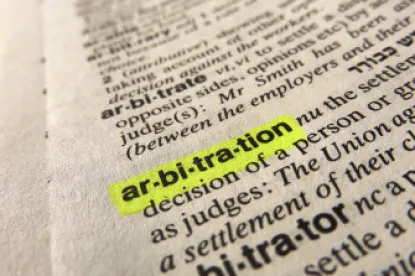When Congress passed and President Biden signed the Ending Forced Arbitration of Sexual Assault and Sexual Harassment Act (“the Act”) last year, we predicted it was just the beginning of an all-out federal assault on arbitration. We weren’t wrong – so far, there are additional bills pending in Congress to exempt age and race discrimination and harassment claims from arbitration. See H.R.4120 – Protecting Older Americans Act of 2023; S. 1408 – Ending Forced Arbitration of Race Discrimination Act of 2023
In the meantime, however, the plaintiff’s bar has been hard at work arguing that even claims that do not relate directly to any alleged sexual assault or harassment may be so “intertwined” with sexual assault/harassment that all of the employee’s claims are exempt from arbitration and must be tried to a jury. See, e.g., Turner v. Tesla, Inc., Docket No. 3:23-cv-02451 (N.D. Cal. May 19, 2023). Indeed, similar arguments already have prevailed in the Southern District of New York over the past six months. See, e.g., Johnson v. Everyrealm et al., 2023 WL 2216173 (S.D.N.Y. Feb. 24, 2023) (finding that when a plaintiff alleges sexual harassment alongside other discrimination claims, the entire case is exempt from arbitration so long as the Act is properly invoked); Delo v. Paul Taylor Dance Found., 2023 WL 4883337 (S.D.N.Y. Aug. 1, 2023) (same); but see Mera v. SA Hospitality Group, 2023 WL 96912 (S.D.N.Y. Jun. 3, 2023) (severing wage and hour claims and compelling arbitration because such claims “d[id] not relate in any way to the sexual harassment dispute”).
In the Turner case, Tesla hired Tyonna Turner in November 2020 as a production associate in its Fremont manufacturing facility. At the time of her hire, Turner executed an arbitration agreement by which she agreed to arbitrate “all disputes, claims or causes of action . . . arising from or relating to [her] employment, or the termination of [her] employment” with the company.
Turner alleged that during her employment with Tesla she was sexually harassed “approximately 100 times” and that the company failed to take remedial action following her March 2021 and January 2022 complaints to supervisors regarding the harassment. Turner specifically alleged that, following the claimed harassment, one of her male co-workers made comments about her weight and clothing, as well as his own masculinity, and requested that Turner “come over to his apartment.” She further alleged that this coworker “follow[ed] her around, stalk[ed] her, [and] stare[d] at her” for several months. Turner asserted that she complained about this harassment in September 2022.
Turner separately alleged that she suffered three workplace injuries for which she faced adverse actions from Tesla. Turner also asserted that Tesla terminated her employment in retaliation for her reporting sexual harassment and her on-the-job injuries. Factually and seemingly legally distinct from her other claims, Turner pleaded that Tesla failed to pay her wages at termination as required by the California Labor Code.
After removing the case to federal court, Tesla moved to compel arbitration and argued that Turner’s arbitrable (non-sexual harassment) claims should be severed from the sexual harassment claims and compelled to arbitration while the balance of her claims should be stayed in the civil action pending resolution of the arbitrable claims. Judge William H. Orrick III denied Tesla’s motion to compel arbitration in its entirety.
The Court first addressed Tesla’s argument that any claims of sexual harassment predating March 3, 2022 (the Act’s effective date) were outside the statute’s non-retroactive coverage. The court found that at least five of Turner’s claims accrued at the time of her termination in September 2022, thus it “would be illogical to bar Turner from discussing any pre-March 3, 2022 conduct in connection with a claim” that was before the court.
Second, the Court refused to sever the non-sexual harassment claims and compel them to arbitration. The Court found that “the core of Turner’s case alleges ‘conduct constituting a sexual harassment dispute,’” and that her other claims relating to her workplace injuries and unpaid/late wage payments were somehow so “intertwined” with her sexual harassment claims as to exempt those claims from arbitration as well.
If the Turner Court’s view becomes the norm, there is a risk that anytime an employee alleges a sexual harassment or sexual assault claim (theoretically the only subject matter that is governed by the Act and, therefore, shielded from arbitration), a court can conclude that some or even all other claims asserted in the lawsuit are in some way “intertwined” with the sexual harassment/assault claims such that no part of the case goes to arbitration and the entire case is submitted to a jury.
If and when that happens, arbitration will, alas, become “just somebody that we used to know.”



 />i
/>i

